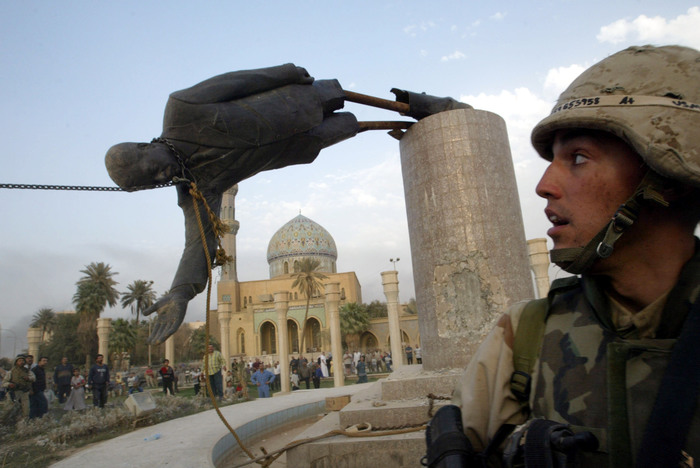With a large 10 kilogram hammer Kazem Jabburi, Iraqi wrestling and weightlifting champion, rushed to the central Firdos square in Baghdad and began to shatter the base of the enormous statue of Saddam Hussein, whose absolute power was crumbling in those days of early April 2003 under the blows of the Anglo-American invasion.
Twenty-one years later Kazem regrets that gesture. And above all he says he is nostalgic for the times of Saddam, deposed after 25 years in power and then hanged in Baghdad following a trial described by many as summary. "If I could go back, I wouldn't damage the statue of Saddam, on the contrary I would put it back up in the center of the square", says the 72-year-old speaking to the pan-Arab TV Al Arabiya.
Yet the anger of that April 9, 2003, expressed with a gesture broadcast on TV around the world, was the result of suffering that came from afar. "I come from a family of Marxists. For this reason, Saddam had many of my family members imprisoned and killed, including my uncle and my brother. Some were executed, others were sentenced to life imprisonment" for crimes of opinion.
Kazem, born in 1952, was a lover of large-displacement motorcycles, especially Harley-Davidsons, from a young age. He claims to have been "one of the few who knew how to repair them" and that many sons of the regime's leaders, including Uday, one of Saddam's scions, relied on his hands to modify their motorcycles. Some of these, according to the Baghdad media, had been stolen by the regime's men during the Iraqi invasion of Kuwait. So much so that Kazem Jabburi was accused in 2005, two years after the fall of Saddam, of collecting stolen motorcycles.
The passion for motors has long been intertwined with that for wrestling and weightlifting. And, above all, he linked Kazem directly to Uday, who was also passionate about body building and who shared the management of a gym in Baghdad with Kazem. Following disagreements between him and Uday over motorcycles and the use of steroids for muscle growth, Kazem ended up in prison in the late 1990s. “The accusations were all made up, it was a way to put me aside and make me pay,” says the former Iraqi heavyweight champion.
"For this reason, when everyone rushed to Firdos Square on April 9, 2003, I took a huge hammer and started smashing the base of the statue" says Kazem. The statue, 12 meters high, had been erected only a year earlier. "Then an American soldier arrived - he says - and we agreed that to bring down the statue we would need a crane... shortly after - the story continues - an tank arrived and with a rope tied around the statue's neck we pulled it down from the pedestal."
This image remained for a long time in the eyes of millions of Iraqis and foreign observers, an icon of a period of history that was ending and another that was beginning.
After 2003, Iraq effectively entered a new phase of instability and civil and regional war from which it has never emerged. "Saddam is no longer here, but a thousand Saddam Husseins have arrived... today the parties in power are corrupt and kill without a reason. The country is no longer safe, whereas in Saddam's time there was security."

